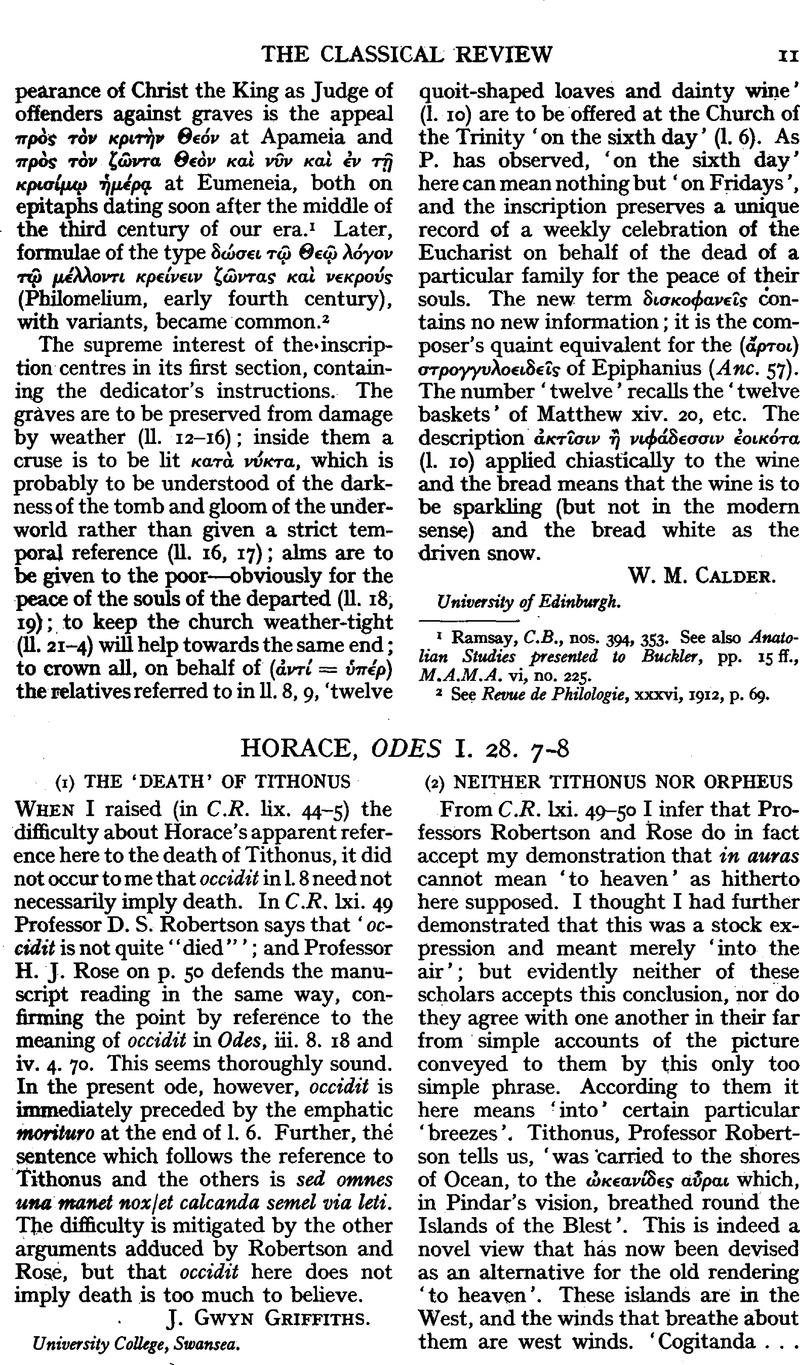No CrossRef data available.
Published online by Cambridge University Press: 27 October 2009

1 I was there, of course, arguing against Mr. Griffiths's deduction that since it must here mean ‘died’ it was ‘inexact’; but what I wrote is obviously equally applicable as against this other view, which had occurred to me as one that nobody would ever maintain.
2 Rose's remissus appears to have been intended for an incidental improvement. That word is, of course, ruled out by the following admissus, with which it would make antithesis but not point.